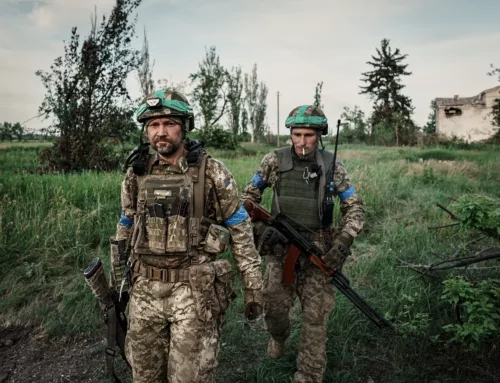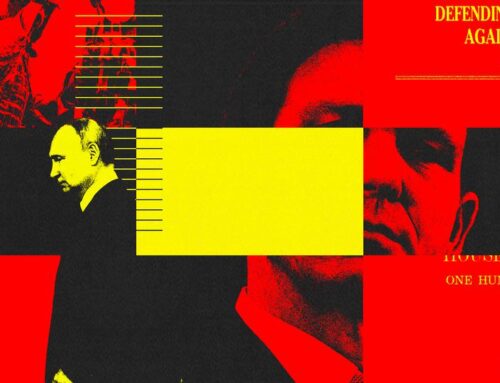THE PROPOSITION THAT THE ABORTIVE mutiny led by Yevgeny Prigozhin will result in a more vulnerable and weakened Vladimir Putin is appealing to those of us hoping for a quick victory for Ukraine and possibly even regime change in Moscow. After all, as we were reminded by the Arab Spring movements in 2011 that led to the downfall of several longstanding authoritarian regimes in the Middle East, such regimes seem stable—until they’re not.
Hopes for major political turmoil in Russia and/or threats to Putin’s iron grip on power, however, may prove premature. Recent examples in other countries offer reasons for caution. Prigozhin’s failed play for power may lead to a further consolidation of power in Putin’s hands, at least temporarily. And even if successful, a coup in Moscow may not produce a more benign leadership, though this is not to argue we should root for Putin to stay in power.
Ultimately, Prigozhin’s short-lived insurrection, the greatest challenge to the power structure in Moscow since Putin became president in 2000, wasn’t that impressive. Yes, Prigozhin’s several thousand men made it to within 200 kilometers of the capital, but they suddenly turned around and headed back to Rostov in less than 24 hours. There were no massive demonstrations in support of the regime, but the whole thing happened so quickly, over a weekend, that the regime didn’t have time to mobilize the masses. Several hundred thousand of Putin’s National Guard appeared prepared to confront Prigozhin’s forces if they had proceeded toward Moscow. Attention-grabbing as Prigozhin’s “march” of weekend warriors was, if that was the best he could muster, Putin’s hold on power was never really in any danger.
It’s important to recall Putin’s political history. He inherited a country with a corrupt but somewhat competitive electoral system and, more importantly, a broad range of social and cultural freedoms. He gradually transformed it into the model of modern dictatorship that has dominated Russia for more than two decades. Putin overcame the oligarchs who held economic and media power, destroyed liberal political parties, crushed civil society critics, and turned a vibrant media into a propagandistic monstrosity. He became the prototype for the world’s autocrats and would-be strongmen.
The most salient examples of failed coups this century suggest that Putin’s domestic power may even be fortified by the Wagner mutiny. The first case is Venezuela. In 2002, Hugo Chavez was a controversial leader who had a following among the poorer classes but faced a large opposition. Chavez’s drive to weaken the country’s democratic institutions and market economy had produced inconclusive results, and there was no guarantee that his “Bolivarian Revolution” would prevail.
Then, in a period of two days, one faction of the military removed Chavez from office before another faction restored him in quick succession. For a while, Venezuela was engulfed in chaos. In the aftermath, Chavez began to tighten his hold on power. Within a few years, he purged the military, destroyed independent media, and, perhaps most significantly, crippled the business community, driving millions of Venezuelans to neighboring states.
The result was that a country that had ranked among South America’s strongest democracies had become akin to a military dictatorship that was able to maintain power even as its economy went into free fall. Nicolas Maduro replaced Chavez after the latter’s death in 2013 and has maintained a similarly dictatorial grip on power.
Turkey offers another example. Recep Tayyip Erdoğan’s Justice and Development Party gained national power in 2002 elections. In his first several years in office, Erdoğan was regarded as a reformer who was building a stronger democracy. He won the country’s first election for president in 2014, but he was already embarked on the road to autocracy.
In 2016, Erdoğan overcame what he said was a coup attempt aimed at removing him from power, engineered by Fethullah Gulen, an Islamic preacher living in exile in the United States. Although segments of the military took part in the uprising, it quickly fizzled out. The government subsequently declared a state of emergency, during which over 150,000 soldiers, judges, police, civil servants, academics, and teachers were either arrested or dismissed from their jobs. In May this year, Erdoğan won the presidential election again, disproving the bet that he was finished politically.
In Venezuela and Turkey, a straight line can be drawn from failed coups to the emergence of full-bore autocracy in which pluralism has been smothered, the leader retains his position despite disastrous economic failures, and the ruling clique enjoys the strong loyalty of the military and other security services. Russia under Putin, of course, is already an authoritarian state sliding ever more quickly into totalitarianism.
Egypt, one of the countries involved in the 2011 Arab Spring movement, offers a different lesson. The fall of longtime leader Hosni Mubarak was followed two years later by a military coup led by General Abdul Fattah al-Sisi. Under al-Sisi, Egypt has experienced an even worse crackdown on political rights and civil liberties than under Mubarak, a reminder than even when successful, coups can produce worse outcomes than before.
That is not an argument to suggest we should want Putin to remain in power. He has proven to be an existential threat to his own people, his neighbors, and to the broader international community. Prigozhin may have tested the system like no other before and exposed it to be more vulnerable than many thought, but he came up short.
According to the New York Times, Russia is on a fast track towards developing one of the world’s most sophisticated systems of digital surveillance, with the goal of ferreting out Russian citizens who might harbor dissenting views on the war.
Previously, Russia’s surveillance spying was regarded as somewhat laggard, especially when measured against countries like China and Iran, where censorship has long been taken seriously. Now Russia seems determined to catch up with its friends and partners to make sure nothing is left to chance.
In addition to spying on its own people, Russia tested the “sovereign internet” system it has been developing for years, temporarily cutting off major parts of the Russian internet from the rest of the world in the early hours of June 5. The Russian government wants to know everything about its people, and wants them to know as little as possible about the rest of the world—all in the service of keeping Putin and his henchmen in power.
For some, Prigozhin’s attempt echoed the 1991 coup attempt by hardline Soviet officials against the reformist Soviet leader Mikhail Gorbachev. While the attempt failed after several days, it did so largely because Boris Yeltsin led the counter-coup campaign. Gorbachev was out of power in a few months, largely because Yeltsin was eager to shove him aside. But Prigozhin is no Yeltsin and Putin is no Gorbachev. Putin won’t last forever, and the war he ordered against Ukraine has been a disaster for Russia. The Prigozhin-led mutiny exposed cracks in the Putin regime, but as the edifice of power and stability erodes, those around Putin will probably only redouble their efforts to prop it up.





